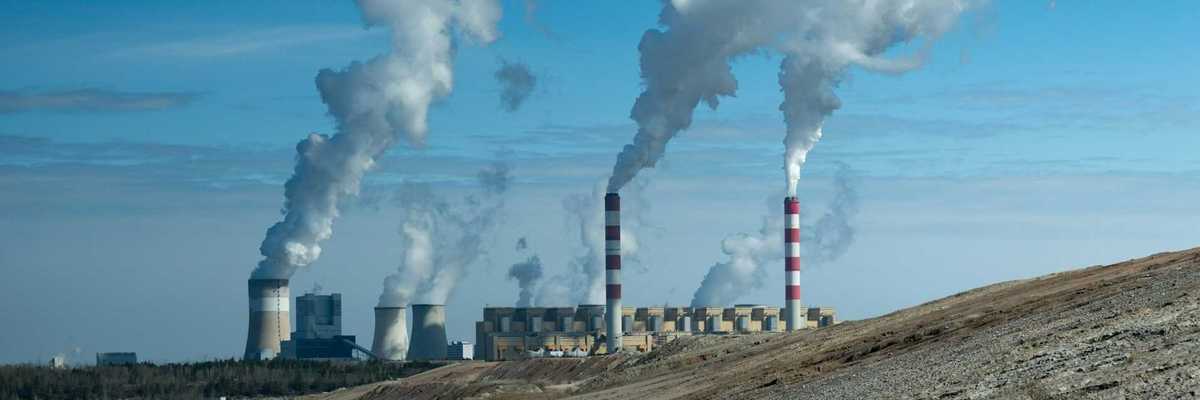elections
Extreme heat is driving Arizona’s political debate on climate change
Arizona is experiencing severe climate impacts, making climate change a critical issue for voters and politicians in the 2024 elections.
In short:
- Arizona has seen a 1,000% increase in heat-related deaths over the past decade, with intense droughts, wildfires, and floods becoming more common.
- Climate change concerns dominate local political debates, influencing legislation and voter priorities in this battleground state.
- Republican legislators are divided on climate policies, with some controversial bills being killed due to internal disagreements.
Key quote:
“This year, we’ve seen the widest margin in favor of conservation.”
— Dave Metz, pollster
Why this matters:
With rising temperatures, prolonged droughts, and more frequent wildfires, the state's voters and politicians are feeling the heat—literally and figuratively. The situation is pushing climate policy to the forefront of political discourse, compelling candidates to address environmental sustainability and resilience.
Local elections could reshape Phoenix's energy policy
In a pivotal turn for Phoenix's energy future, local elections could usher in a wave of clean energy reforms, challenging the city's longstanding reliance on fossil fuels.
In short:
- Upcoming utility board elections in Arizona and Nebraska could significantly influence America's energy landscape, pivoting toward sustainable sources.
- Corruption scandals and the influence of money in utility elections have spotlighted the need for transparency and change.
- Clean-energy advocates aim to transform the Salt River Project, advocating for increased solar energy use and democratic voting reforms in utility elections.
Key quote:
"We’re looking to make history. We want to get serious about greenhouse gas reductions, set retirement dates for Salt River Project coal plants and increase solar in the district.”
— Lauren Kuby, former vice mayor of Tempe, Arizona
Why this matters:
Local politics can both facilitate and impede progress. On one hand, supportive leadership can drive the adoption of renewable energy through favorable policies and investments. On the other, opposition from entrenched interests, such as fossil fuel companies or sectors dependent on traditional energy sources, can slow or derail initiatives.
Europe's climate policy opinions vary ahead of elections
A new survey debunks the notion of a broad green backlash against climate policies in Europe, suggesting a majority still favors more ambitious action.
In short:
- Voters in Germany, France, and Poland show strong support for more aggressive climate policies, despite some skepticism about specific measures.
- Regulatory restrictions on gas, oil heating, and internal combustion engines are unpopular, while investments in green infrastructure enjoy wide support.
- Opposition to more ambitious climate action remains stable, not increasing significantly despite fears of a green backlash.
Key quote:
“Parties should not waste the coming months outbidding each other over how to cater to imagined climate fatigue but compete over concrete recipes to green the economy."
— Survey authors
Why this matters:
Surveys and studies consistently show that Europeans are worried about climate change and its potential to cause natural disasters, economic instability, and health issues. Many Europeans believe that their governments and the European Union should take more aggressive measures to reduce greenhouse gas emissions, transition to renewable energy sources, and invest in sustainable infrastructure.
North Dakota's diverse environmental views revealed in statewide poll
A recent poll in North Dakota shows a wide range of opinions on climate change, carbon capture, and electric vehicles, reflecting the state's varied environmental perspectives.
In short:
- The poll indicates that 43% of North Dakota voters see climate change as a serious problem, with a clear divide along party lines.
- Opinions on carbon capture and storage are mixed, with many residents undecided about its effectiveness in reducing climate change impacts.
- There is low interest in electric vehicles among North Dakotans, with 85% unlikely to purchase one next.
Key quote:
“We found that opinions on environmental issues have become highly politicized."
— Trevor Smith, chief research officer at WPA Intelligence
Why this matters:
The poll results highlight the complexity of environmental issues in North Dakota, a state known for its extreme weather and significant role in energy production. Understanding these diverse viewpoints is crucial for developing effective environmental policies and addressing climate change challenges.
Be sure to read Peter Dykstra’s 2022 piece: Pipeline politics.
How the far right weaponized heat pumps
When they write the book on the downfall of liberal democracy, will it begin with the heat pumps?
3 ways to tell if a candidate is serious about climate change
Alberta’s party leaders are ignoring the climate crisis while the region burns
On the zigzagging campaign trail of the province’s general election, neither party leader has confronted the realities of climate change and how it will likely dramatically reshape life in the Canadian prairies.









